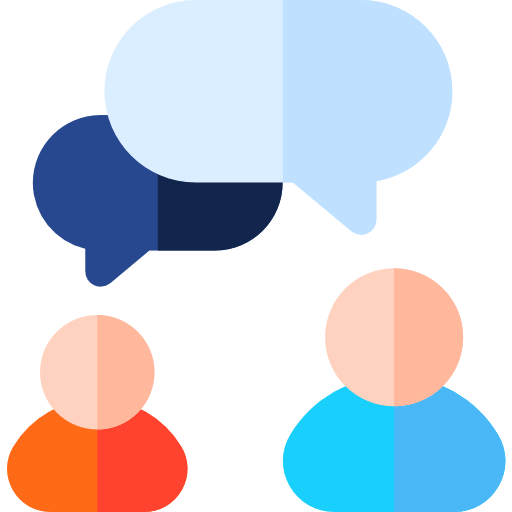Child Therapy in Texas
Childhood should be filled with joy and growth, but anxiety and trauma can stand in the way. Deep Eddy’s child therapy and play therapy services in Texas provide the support children need to overcome these challenges.
Call (512) 956-6463
Request for Appointment

Our Approach to Child Therapy
At Deep Eddy, we take a child-centered and family-inclusive approach to therapy, tailoring each session to your child’s developmental stage, personality, and challenges. Our child therapists use evidence-based methods, such as:
- Play Therapy for emotional exploration.
- Cognitive Behavioral Therapy (CBT) for thought and behavior patterns.
- Trauma-Informed Care to help heal past wounds.
We also involve parents in the process to ensure lasting growth, stronger connections, and meaningful change for the entire family.
How Our Child Therapy Works
Here’s what you can expect when starting therapy with us:
Initial Intake Session: Our therapist meets with parents and gathers information about the child’s challenges, needs, and goals to build a tailored therapy plan.

Tailored Therapy Sessions: Based on the child’s age and concerns, sessions incorporate techniques like play therapy, skill-building, or psychoeducation in a comfortable, engaging setting.

Parental Involvement and Progress Monitoring: Regular guidance sessions keep parents informed, provide actionable strategies, and track their child’s progress, fostering collaboration and connection.

Types of Child Therapy We Offer
At Deep Eddy, we recognize that every child is unique. That’s why we provide a variety of evidence-based therapies to address their specific needs:
Play Therapy
Children communicate and process emotions through play. In play therapy, our therapists use toys, art supplies, and games to create a supportive space for emotional growth and problem-solving.
Cognitive Behavioral Therapy (CBT)
CBT helps children understand the link between thoughts, feelings, and behaviors. This structured approach teaches emotional regulation, conflict resolution, and coping strategies.
Dialectical Behavior Therapy (DBT)
DBT supports children with intense emotions or impulsive behaviors, focusing on mindfulness, emotion regulation, and interpersonal skills.
Trauma-Focused Therapy
For children who’ve experienced traumatic events, we offer a safe space to process their emotions and regain a sense of safety through age-appropriate methods.
Supporting Your Child’s Therapy with Your Own Growth
Parent well-being is a critical factor in a child’s healing process. Deep Eddy offers personal therapy for parents to address stress, mental health concerns, or parenting challenges. By supporting your growth, we help strengthen the entire family’s journey toward resilience.
Child Therapy Pricing & Insurance Coverage
We believe therapy should be accessible to every family. Here’s how we make it work for you:
- Transparent pricing structure
- Acceptance of most insurance plans
- Sliding scale options for families in need
Contact us for details about our payment plans and financial assistance.



Child Therapy FAQs
How does child therapy help children?
Child therapy provides a safe space to explore emotions, learn coping strategies, and develop problem-solving skills tailored to their age and needs.
What is the role of parents in child therapy?
Parents play an essential role by collaborating with our child psychologists, reinforcing strategies at home, and supporting their child’s emotional growth.
Can therapy help with issues like anxiety, trauma, or behavioral challenges?
Yes, our therapists use evidence-based techniques to address a wide range of concerns, from anxiety to trauma and beyond.
Is online child therapy effective?
Absolutely. Online therapy offers a convenient, engaging format that maintains the same high standard of care as in-person sessions.
How long does it take to see progress in therapy?
Progress varies by child, but many families notice improvements within a few months of consistent therapy.
Convenience of Telehealth Therapy
At Deep Centered, we believe mental health care should be accessible, flexible, and tailored to your needs. With our telehealth therapy services, you can receive the same high-quality care from the comfort of your home or wherever you feel most at ease. Whether you’re balancing a busy schedule or prefer the convenience of virtual sessions, we’re here to support you.
Why Choose Telehealth with Deep Centered?
Anywhere, Anytime: Access therapy from your preferred location, no travel required.
Flexible Options: Book sessions that fit seamlessly into your day, including evenings and weekends.
Confidential and Secure: All sessions are HIPAA-compliant, ensuring your privacy and peace of mind.
Eliminate Barriers: Say goodbye to long commutes and waiting rooms.
Take the First Step Toward Better Mental Health
Hear from Our Clients
With Deep Eddy it was easy to find the ideal therapist. I cannot praise the convenience and consistency they’ve provided through my journey.

Deep Eddy’s therapists helped my son process his anxiety and feel more confident at school. The parent sessions also gave us tools to support him at home. We’re so grateful for their care!




I’ve had a lot of different therapists but my one at Deep Eddy has been the best! It’s been exactly what I needed!




Book now to get scheduled in as soon as 2 days.*
*pending patient availability



